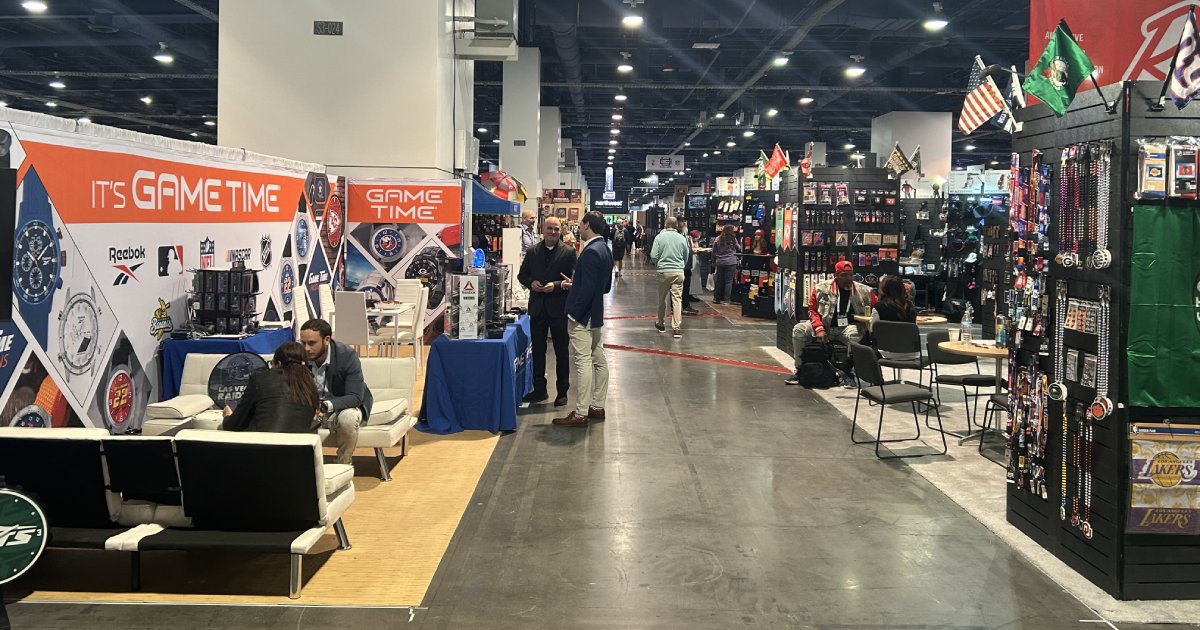New Sports Leagues Enter the Licensing Arena

By Mark Seavy
As an increasing number of professional sports leagues gain traction, the opportunities for licensing are growing.
The National Lacrosse League, Major League Rugby, Grand Slam Track, Professional Women’s Hockey League, and Major League Pickleball may not yet have the luster of leagues known simply by their acronyms—including NBA, NFL, MLB, and NHL—but they were top of mind for many showgoers last week at the Sports Licensing & Tailgate Show in Las Vegas.
And if you add in the WNBA’s growing popularity—Wilson Sporting Goods’ licensed Caitlin Clark-branded basketballs sold out in less than 40 minutes last September and another 2,000 units are due in the spring—these leagues appear to catching consumer attention faster than ever.
’47 Brands launched headwear for Major League Rugby’s Seattle Seawolves, initially without a licensing agreement and on a contract basis based on local demand, according to an account representative at the sporting goods supplier. And Winners Alliance, the commercial arm of the Professional Tennis Players Association, was shopping the show for deals that could put professional tennis players’ image on apparel for the first time. Parkside Collectibles, which has licensed trading card agreements with Major League Lacrosse (MLL) and the National Women’s Soccer League (NWSL), is also seeking an agreement with Winners Alliance.
“A lot of it is marketing and everybody wants something that is unique and custom, and manufacturers have evolved to a point that they can produce on demand and in small quantities,” said Steve Scebelo, President at REP Worldwide. “People see the future for emerging sports. If you are reasonable on the business with a fair royalty and you don’t get greedy on the minimum guarantees, it gets the merchandise out there.”
And, in fact, the length of time it takes for a team or league to establish a fan base large enough to create demand for a full licensing program appears to be shrinking—fueled in part by social media.
In the case of the Women’s National Basketball Association, which started in 1997 and has its licensing program administered by the NBA, the arrival of Caitlin Clark last year heralded a new era for licensing. That has been followed by Unrivaled, a women’s 3-on-3 league founded by WNBA stars Breanna Stewart and Napheesa Collier that debuted earlier this year. Similarly, TMRW Golf League (TGL), which launched earlier this year in partnership with the PGA and benefits from the star power of pro golfers Tiger Woods and Rory McIlroy, is also developing a licensing strategy.
Despite growing engagement across social media, however, many suppliers are still testing demand for the new leagues and teams before moving forward. Rather than signing an agreement with royalties and minimum guarantees that might be hard to gauge, some suppliers are starting out as contract suppliers. This strategy can be necessary because new teams and leagues may not yet have licensing staff in place to administer agreements, licensing executives said.
“Some of these [leagues and teams] don’t have enough meat on the bone yet, so we have said let’s create a market and they can put verbiage in the agreement, and we can set up a sponsorship to get some tread on the deal,” said James McCollough, Director of Licensed Sales at apparel supplier Blue 84. “If we are successful, I am paying the team or league back with their fans’ money and not mine. But I need to get the business first to show a return on the investment because it may take few years for the fans to know the brand.”
That return on investment will also hinge on the ability of suppliers to find retailers willing to carry licensed goods from the new leagues, licensing executives said. That will likely require that the goods initially be sold in arenas and stadiums at the start, as well as directly to consumers to help prove demand exists for the products.
“It is going to be driven by the need at retail and if there is support in a given market,” said a Coliseum Athletics spokesperson, whose company has an apparel agreement with MLL. “It may not move the needle, but they can be small victories.”




